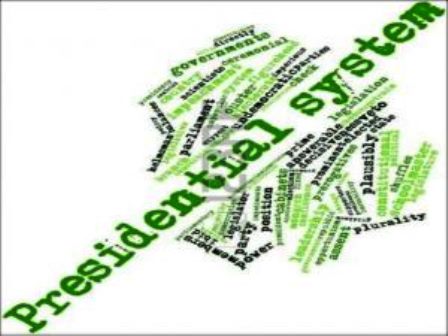Meaning & Characteristics of Presidential System of Government
A Presidential System of Government is one in which there is an executive President, that is, someone vested with all executive powers and who combines the office of head of state and head of government.
The President whose constituency is the entire country, combines government powers with ceremonial powers, and is also commander-in-chief of the armed forces.
Below are a list of the characteristics of a presidential system of government in Nigeria.

Characteristics of the Presidential System of Government
1. In Presidential System of Government, the President is both the head of state and head of government, and exercises real executive powers.
2. The President and legislators remain in office for a fixed term.
3. The President is not chosen by the legislature, but is elected by the electorate directly, or indirectly through an electoral college.
4. The principle of collective responsibility, which obtains in a cabinet system of government does not apply in a Presidential System of Government.
5. The principle of checks and balances is applicable. For instance, in the US, the President can veto Acts of Congress, the legislature can impeach and remove Federal judges and the President, while the judiciary can declare a law unconstitutional through the process of judicial review.
6. The principle of separation of powers applies in a Presidential System of Government. Members of the legislature, the executive, and the judiciary are therefore separate from one another.
7. The President has the power to appoint supreme court judges and ministers, subject to the approval of the legislature, and sign bills into law.


